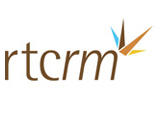The Slow Demise of RSS Feeds
 RSS feeds were once considered a critical component of any Web 2.0 strategy. Many believed that adding RSS to a website would result in content being distributed all over the Web and, as a result, drive traffic back to a site. In reality, RSS feeds never gained widespread use for several reasons - they required the use of another technology (RSS readers), didn't fulfill the promise to make reading content easier for users and were quickly eclipsed by other technologies such as Facebook and Twitter, which are more intuitive and therefore widely adopted.
RSS feeds were once considered a critical component of any Web 2.0 strategy. Many believed that adding RSS to a website would result in content being distributed all over the Web and, as a result, drive traffic back to a site. In reality, RSS feeds never gained widespread use for several reasons - they required the use of another technology (RSS readers), didn't fulfill the promise to make reading content easier for users and were quickly eclipsed by other technologies such as Facebook and Twitter, which are more intuitive and therefore widely adopted.
Kara Reinsel, Senior Strategist, Digital Integration & Innovation
 Key Information
Key InformationFirst, a quick primer on what RSS is. RSS (Really Simple Syndication) was developed in 1999. It offers Web publishers (blogs, websites, video, audio, etc.) a way to publish frequently updated content in a feed format. Users subscribe to a feed and then read the feed's content via an RSS reader.
In its heyday (circa 2005/2006), RSS was seen as an essential and easy way to distribute content, build traffic for a site and improve SEO performance. Websites were quick to add RSS feeds, leading to the RSS feed icon's virtually ubiquitous presence on the Web. However, Web properties overestimated user adoption of RSS readers. In 2008, a Forrester Research study revealed 11% of the online U.S. adult population used an RSS feed on a monthly basis. One year later, the number dropped to 9%.
1 Recent research indicates that RSS usage continues its stagnation and decline.
The demise of RSS offers an important case study of how a product fails to take off and, as a result, becomes obsolete. RSS's decline can be traced to the following factors: 1) it wasn't easy to use, 2) other technologies did the same thing as RSS but better, 3) it failed to evolve. Furthermore:
- The Achilles' heel of RSS feeds is that they need an RSS reader in order to be usable. If the success of a product relies on the widespread adoption of another product over which it has no control, it increases the likelihood of failure. The success of RSS feeds was severely limited by the failure of RSS readers to gain traction with users.
- Although RSS was supposed to be "really simple," it never was. Users didn't understand that they needed to first find an RSS reader, download and install it, then set up their subscriptions to RSS feeds within the reader. For many users, it's easier to check their favorite websites and blogs as frequently (or infrequently) as they choose. Plus, checking websites doesn't result in an overloaded inbox on an RSS reader that a user must then manage.
- Twitter and Facebook offer the same real-time updates as an RSS feed, and they are services with which users are already familiar and that they use on a daily basis. Not to mention the user base for RSS readers pales in comparison to Twitter and Facebook. In addition, Twitter and Facebook incorporate the opinions and recommendations of friends, family and peers, which facilitates an informal curating of content and information.
- RSS is no longer required to power the newest generation of feed reader apps such as Flipboard. Furthermore, Flipboard presents content in a visually compelling, easy-to-use interface that makes reading content enjoyable compared to the circa-1995 design of many traditional RSS readers.
Implications and Action ItemsCompanies and organizations can protect their products or services from obsolescence and avoid the same fate as RSS:
- Understand the ecosystem: Does the product rely on another product or service in order to be functional? If so, it's critical to understand the outlook and adoption of the partner product, because its success or failure directly impacts the primary product's ability to become a winner.
- Be relevant: For many users, simple behaviors meet their needs, such as periodically checking a website throughout the day for updates rather than using an RSS feed and reader. A product must be relevant to users' actual needs, not the needs that a company or organization thinks they should have.
- Target a niche: RSS feeds and readers are better suited for "power users" - people who consume a large volume of content on a daily basis. RSS might have found more success if it had focused on the power users who would appreciate and understand its functionality and convenience.
1 ZDNet, "RSS: A good idea at the time, but there are better ways now." August 25, 2009